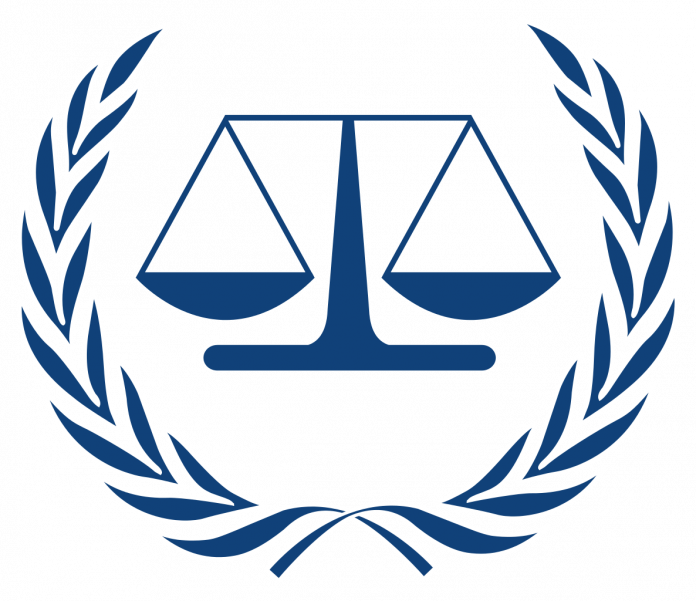This article is written by Jannat, from Chandigarh University, Mohali. The article evaluates the effectiveness of the International Criminal Court.
Table of Contents
Introduction
“The most serious crimes of concern to the international community as a whole must not go unpunished”.
–Preamble to the Rome Statute of the International Criminal Court
The International Criminal Court was established on July 17, 1998, when 120 countries adopted the Rome Statute of the International Criminal Court (“the Rome Statute”). Following the Rome Statute’s entry into force on July 1, 2002, states for the first time in human history decided to accept the jurisdiction of a permanent international criminal court for the prosecution of perpetrators of the most heinous crimes committed in their territories or by their nationals. National courts are not replaced by the International Criminal Court.
Every State is required by the Rome Statute to exercise its criminal jurisdiction over people who commit international crimes. The International Criminal Court can only intervene if a State is unable or unwilling to investigate and punish the offenders in good faith. The International Criminal Court’s fundamental objective is to help eliminate impunity for those who commit the most heinous crimes that affect the international community as a whole, and hence to contribute to the prevention of such crimes.
A well-informed public may help to ensure that international justice is respected and enforced in the long run.
Historical Background
During the twentieth century’s battles, some of the most horrific acts were perpetrated. Unfortunately, many of these international law offences have gone unpunished. Following World War II, the Nuremberg and Tokyo tribunals were founded. When the Convention on the Prevention and Punishment of the Crime of Genocide was created in 1948, the United Nations General Assembly recognized the need for a permanent international court to deal with the types of crimes that had recently occurred.
Following the Cold War’s conclusion, the concept of a worldwide criminal justice system resurfaced. However, while the United Nations was debating the ICC Statute, the world witnessed the committing of horrific crimes on the territory of the former Yugoslavia and Rwanda. In reaction to these atrocities, the United Nations Security Council created ad hoc tribunals in each of these cases. These incidents had an undeniable influence on the decision to hold the conference that formed the ICC in Rome in the summer of 1998.
A conference of 160 states formed the first treaty-based permanent international criminal court on July 17, 1998. The pact approved at that meeting is known as the International Criminal Court’s Rome Statute. It establishes, among other things, the offences under the ICC’s jurisdiction, the rules of procedure, and the means for States to collaborate with the ICC. Countries who have agreed to these regulations are referred to as States Parties, and they are represented in the Assembly of States Parties.
The Assembly of States Parties, which meets at least once a year, establishes broad rules for the Court’s administration and conducts an annual evaluation of its operations. During these sessions, the States Parties examine the actions of the working groups created by the States, as well as any other matters concerning the ICC, consider new initiatives, and approve the ICC’s yearly budget.
The Rome Statute has almost 120 States Parties, representing all regions: Africa, Asia Pacific, Eastern Europe, Latin America, and the Caribbean, as well as Western Europe and North America.
Basic information about the court
The seat of the court
The Court’s headquarters are in The Hague, Netherlands. The Rome Statute states that the Court may convene overseas whenever the justices deem it necessary. In addition, the Court has established offices in the locations where it conducts investigations.
Funding of the court
The Court is supported by voluntary donations from governments, international organizations, individuals, businesses, and other entities, as well as donations from the States Parties.
Autonomy of the court
The ICC is an independent body whose mission is to investigate and punish individuals for crimes within its jurisdiction without the need for a special mandate from the United Nations. On 4 October 2004, the ICC and the United Nations signed an agreement governing their institutional relationship.
The ICC’s Structure
The Presidency, Chambers, Office of the Prosecutor, and Registry are the four organs that make up the ICC. Each of these organs has a distinct function and mission.
ICC and other courts
The International Criminal Court (ICC) is a permanent autonomous court, unlike the ad hoc tribunals for the former Yugoslavia and Rwanda, as well as other comparable courts formed within the framework of the United Nations to deal with specific crises, which have a limited purpose and authority. The ICC, which prosecutes people, is also distinct from the International Court of Justice and the United Nations’ primary judicial instrument for resolving disputes between states. The Hague is also home to the ad hoc tribunal for the former Yugoslavia and the International Court of Justice.
The International Criminal Court does not replace national criminal justice systems; rather, it supplements them. It can investigate and, if necessary, prosecute and trial persons only if the State in question does not, cannot, or is unwilling to do so sincerely. This might happen if procedures are unnecessarily protracted or if they are designed to absolve persons of criminal guilt. This is known as the complementarity principle, which gives primacy to national systems and States have the primary responsibility for prosecuting the most severe of criminals.
Jurisdiction
When a state agrees to become a party to the Rome Statute, it undertakes to surrender to the ICC’s jurisdiction over the offences listed in the Statute. When the accused offender is a citizen of a State Party or the crime was committed on the territory of a State Party, the Court may exercise its jurisdiction. A state that is not a party to the Statute can also choose to accept the ICC’s jurisdiction. When the Security Council, acting under Chapter VII of the United Nations Charter, sends a situation to the Office of the Prosecutor, these prerequisites do not apply.
When a state decides to become a party to the Rome Statute, it agrees to hand up jurisdiction over the crimes enumerated in the Statute to the International Criminal Court (ICC). The Court may exercise its jurisdiction if the accused is a national of a State Party or the offence was committed on the territory of a State Party. Even if a state is not a signatory to the Statute, it might opt to accept the ICC’s jurisdiction. These conditions do not apply when the Security Council, acting under Chapter VII of the United Nations Charter, refers to a situation to the Office of the Prosecutor.
Offences under the jurisdiction of the International Criminal Court (ICC)
When the conditions for the exercise of the Court’s jurisdiction over the latter are met, the Court’s mandate is to try individuals (rather than states) and hold them accountable for the most heinous crimes of concern to the international community as a whole, namely genocide, war crimes, crimes against humanity, and aggression.
How the ICC functions
- Every State Party to the Statute of Rome may seek an inquiry by the Office of the prosecutor. A State not a party to the Statute may also agree with and request the Office of the Prosecutor for the conduct of an inquiry concerning crimes committed on its territory or by one of its citizens. This situation may also be referred to the Court by the UN Security Council.
- Where a Public Prosecutor’s Office is provided with relevant information on the accused and finds that there is a legitimate reason to continue an investigation, and the crime involves citizens of a State Party or State who has accepted ICC jurisdiction, or the crime is committed in the territory of any such State, then the Prosecutor can initiate an investigation on his own. Individuals, intergovernmental and non-governmental organizations, or other credible sources may give such information. However, before an inquiry under those conditions begins, the prosecution must receive approval from the judges of the Pre-Trial Chamber.
- The Public Prosecution assesses, after a careful study of the available data, whether an inquiry is reasonably supported. It must, therefore, determine if genocide crimes, crimes against humanity or war crimes have been committed and whether they have been carried out after 1 July 2002. The prosecution also has to verify if a true investigation or trial of the perpetrators of the crimes is being conducted by any national authority.
- In regions where crimes are said to have occurred, the prosecutor’s office sends its detectives to collect evidence. Researchers must make sure that victims and witnesses are not put at risk. The Prosecutor’s Office also calls for States and international organizations’ cooperation for help. The investigators seek proof of guilt or innocence of a subject.
- Only a pre-trial chamber may, after commencement of an inquiry, issue an arrest warrant or summons to appear upon request by the Prosecution if the reasons to think that a crime has been committed within the jurisdiction of the ICC are reasonable.
- The Registrar should, upon the issuing of a warrant of arrest, communicate to the State concerned or other States, according to the decision of the judges in each case, applications for cooperation demanding the detention and rendition of the suspect. The The court guarantees that a person is provided with a copy of his or her arrest warrant after the arrested person has been arrested and the tribunal has been told this.
- The responsibility to enforce warrants of arrest in all cases remains with States. In establishing the ICC, the States set up a system based on two pillars. The Court itself is the judicial pillar. The operational pillar belongs to States, including the enforcement of the Court’s orders.
- The first appearance of the suspect before the Court occurs soon after he arrives in the Hague. The first hearing validates the identification of the suspect in the Pre-Trial Chamber, assures a suspect’s understanding of the accusations, verifies the language in which the hearing should be held, and establishes the date on which the hearing of charges will commence confirmation.
- The judges of the Court analyze procedural concerns that might be brought before them by the parties before the beginning of the trial and convene hearings for preparation and resolving procedural questions to assist in the conduct of the proceedings fairly and expediently.
- The Prosecution and the Defense Counsel have the chance to submit their case throughout the trial. To show that the accused is responsible beyond a reasonable doubt, the prosecution must provide evidence to the Court. The proof may be in the form of documents, other material items, or declarations from witnesses. Any proof showing that he or she is innocent must likewise be disclosed to the prosecutor. The Prosecutor initially presents the case and calls for testimony by the witnesses. Once each witness is examined in the prosecution, the defence counsel is given the chance to interrogate the witness as well. After all the evidence has been submitted by the Prosecutor, it is the turn of the accused to offer its defence with the help of his or her legal representative’s advice.
- After the victims and the testimonials have been heard and examined by the prosecution and the defence, the judges decide whether or not the defendant is guilty. If the defendants and victims or their legal representatives have participated in the proceedings, the punishment should be announced publicly and wherever it is reasonable.
Triumphs of ICC
The ICC is a very new organisation, having only been open and operating since 2003. As a result, the institution, like the Tribunal courts before it, must consider tiny accomplishments, particularly when dealing with doctrine and law, to improve its uses and extend its powers via enhanced efficiency and less official opposition. To fully realize its potential, the court must demonstrate to the world that it is capable of being a successful permanent institution in international law with clear standards and goals, as well as successful indictments, prosecutions, and convictions of heinous war criminals in various parts of the world.
During civil wars, many war crimes are committed, and in the case of Libya, the civil conflict frequently leads to government change. If a new court is not established, and the state is unable to conduct an investigation or hold a court hearing, the ICC can intervene as a support unit and take over the case, as it has done in the case of Sudanese President Omar Al-Bashir for crimes committed in Darfur, for which his country will never consider indicting him.
In 2010, the court made a key breakthrough that was considered not only as a demonstration of the flexibility of the Rome Statute’s states parties but also as an essential addition to the continuously evolving international society. The Conference in Kampala, Uganda in 2010 took the UN Security Council’s directive a step further, inducting a definition of aggression based on SC Resolution 3314, and adding it to the list of possible crimes that fall under the ICC’s umbrella, alongside genocide, war crimes, and crimes against humanity.
Another illustration of the ICC’s flexibility happened in 2009 when a Review Conference convened and recommended that terrorism be added to the list of crimes subject to the ICC’s jurisdiction. This document, known as Annex E, laid out a fairly acceptable definition of terrorism, which has been one of the major stepping stones in the process of including it in international criminal law and went so far as to almost recommend that terrorism be added to the list of crimes subject to ICC jurisdiction in the Rome Statute.
Overall, the court’s significant achievements have been virtually entirely on paper, rather than in the actual prosecution or punishment of offenders.
Conclusion
The International Criminal Court (ICC) was established to remove clemency for the most heinous crimes of concern to the international community and to contribute to their prevention. However, the Court has a crippling enforcement problem that threatens to jeopardize its function as a guardian of individual rights in the new humanitarian international order. Apart from the enforcement problems of the ICC, an ongoing relegation of the political concerns of the impacted communities in the post-conflict zones to the background of international criminal proceedings threatens to render the entire organization irrelevant.
Given that the vast majority of contemporary conflicts are likely to be internal wars erupting in response to authoritarian rule or opposition to repressive and undemocratic governments, achieving the critical goals of International Criminal Law requires the existence of effective democratic institutions at the national level. Despite the seeming conflict between the aims of justice for atrocity victims and nation-building, a pragmatic approach to international criminal justice administration can achieve the former while simultaneously guaranteeing the necessary democratic foundation for the latter.
References
- International Criminal Court: Successes and Failures (intpolicydigest.org)
- https://ueaeprints.uea.ac.uk/id/eprint/53357/1/2014AliNPhD.pdf
LawSikho has created a telegram group for exchanging legal knowledge, referrals, and various opportunities. You can click on this link and join:
 Serato DJ Crack 2025Serato DJ PRO Crack
Serato DJ Crack 2025Serato DJ PRO Crack










 Allow notifications
Allow notifications


